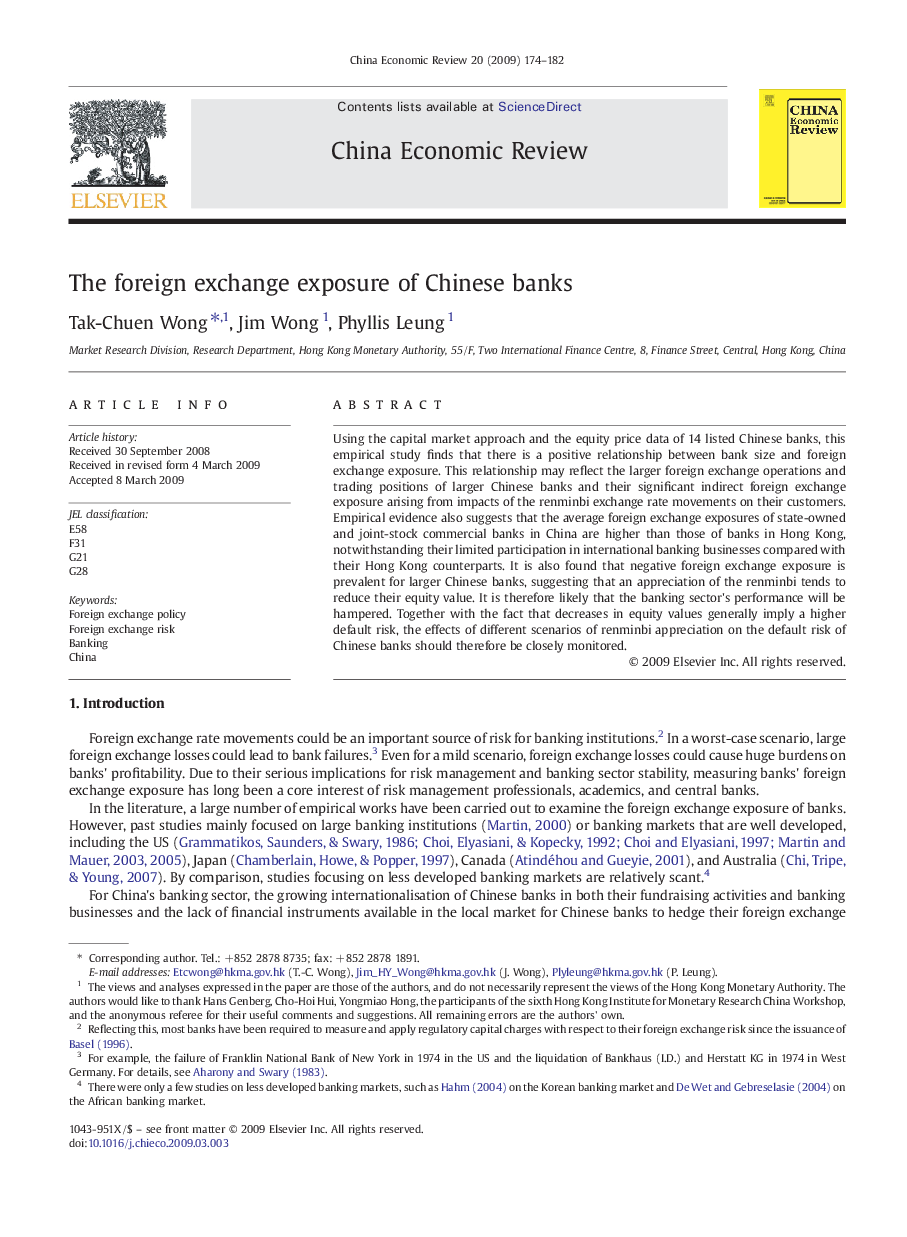| Article ID | Journal | Published Year | Pages | File Type |
|---|---|---|---|---|
| 5047982 | China Economic Review | 2009 | 9 Pages |
Using the capital market approach and the equity price data of 14 listed Chinese banks, this empirical study finds that there is a positive relationship between bank size and foreign exchange exposure. This relationship may reflect the larger foreign exchange operations and trading positions of larger Chinese banks and their significant indirect foreign exchange exposure arising from impacts of the renminbi exchange rate movements on their customers. Empirical evidence also suggests that the average foreign exchange exposures of state-owned and joint-stock commercial banks in China are higher than those of banks in Hong Kong, notwithstanding their limited participation in international banking businesses compared with their Hong Kong counterparts. It is also found that negative foreign exchange exposure is prevalent for larger Chinese banks, suggesting that an appreciation of the renminbi tends to reduce their equity value. It is therefore likely that the banking sector's performance will be hampered. Together with the fact that decreases in equity values generally imply a higher default risk, the effects of different scenarios of renminbi appreciation on the default risk of Chinese banks should therefore be closely monitored.
